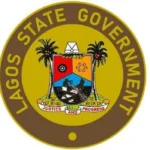As the West African region struggles to deal with the persistent threat of Lassa fever, Nigeria has emerged as a leader in research and development (R&D) coordination, particularly in the push for vaccine development to fight this disease.
This was disclosed at a recent webinar that focused on improving research efforts in West Africa.
The webinar is titled Strengthening Medical Countermeasure R&D Coordination for Emerging Infectious Diseases in West Africa.
Dr. Olukemi Ladeinde, a public health administrator and Director at the Nigeria Centre for Disease Control and Prevention (NCDC), highlighted the role of Nigeria’s Lassa Fever Vaccine Development Taskforce, which was constituted by the Coordinating Minister of Health and Social Welfare, Professor Muhammad Ali Pate.
According to her, the taskforce serves as a high-level coordinating body to ensure that Lassa fever vaccine research efforts align with national priorities and the National Health Security Plan.
The taskforce has evolved into a vibrant mechanism for inter-agency collaboration,said Dr. Ladeinde. It brings together institutions such as the Nigeria Institute of Medical Research (NIMR),the National Agency for Food and Drug Administration and Control (NAFDAC), the National Health Research Ethics Committee, medical teaching hospitals in Ebonyi, Edo and Ondo States, and most recently, the Ministry of Livestock, given the zoonotic nature of Lassa fever.
She noted that while no predefined model existed at the start, the task force’s flexible membership structure has proven essential. We learned as we went along that lack of a model was both a challenge and a blessing—it allowed us to create something adaptable, and now Nigeria can serve as a model for others in the region.
Dr. Julius Gilayeneh from the National Public Health Institute of Liberia (NPHIL) shared Liberia’s experience, noting that while the country has strong emergency response coordination mechanisms down to the district level, it has not yet institutionalised a dedicated taskforce for vaccine R&D. However, a Lassa Fever Technical Working Group and a national steering committee are in place, with promising potential for broader coordination.
There’s a significant opportunity to strengthen Liberias structures,said Dr. Gilayeneh. We must align national priorities with regional strategies, and that requires capacity building and well-resourced institutions.
Dr. Ousmane Faye, a renowned virologist, identified key gaps in the regions coordination frameworks, including limited funding, lack of skilled personnel, and unclear mandates. We need more support from regional entities to build lab capacity, share tools, and create effective training programs, he said.
Dr. Aisha Usman and Ibukun Oguntola of Nigeria Health Watch also weighed in, emphasising the role of communication and civil society engagement in improving preparedness across the region.



